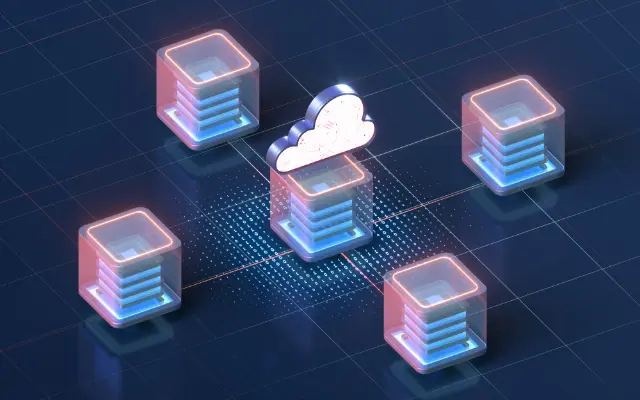Invoice Management Automation: A Game-Changer for the Hospitality Industry
Invoice management is a critical but often time-consuming and error-prone process for businesses in the hospitality industry. From generating invoices to sending them to customers and managing payments, there are many opportunities for mistakes to be made. This can lead to delays in payment, lost revenue, and unhappy customers.
Invoice management automation can help businesses in the hospitality industry to overcome these challenges and improve their efficiency and accuracy. By using Python, AI, and cloud-based solutions, businesses can automate many of the tasks involved in invoice management, such as:
- Generating invoices
- Sending invoices to customers
- Tracking payments
- Reconciling accounts
This can free up staff to focus on more value-added tasks, such as providing excellent customer service.
In addition, invoice management automation can help businesses to improve their cash flow by reducing the time it takes to get paid. By automating the invoicing process, businesses can ensure that invoices are sent out on time and that customers are reminded to pay their invoices promptly.
Invoice management automation is a valuable tool for businesses in the hospitality industry. By using Python, AI, and cloud-based solutions, businesses can streamline their invoice management process, improve their efficiency and accuracy, and free up staff to focus on more important tasks.

Python, AI, and Cloud’s Role for Invoice Management Automation
Python is a powerful programming language that is well-suited for developing unattended bots for invoice management automation. These bots can be used to automate a variety of tasks, such as:
- Generating invoices
- Sending invoices to customers
- Tracking payments
- Reconciling accounts
Unattended bots can run 24/7, without the need for human intervention. This can help businesses to improve their efficiency and accuracy, and to free up staff to focus on more value-added tasks.
In addition to unattended bots, Python can also be used to develop attended bots for invoice management automation. Attended bots require human interaction to complete tasks. This can be beneficial for tasks that require human judgment or decision-making. For example, an attended bot could be used to review invoices for accuracy before they are sent to customers.
Cloud platforms offer a number of features and benefits that make them ideal for invoice management automation. These features include:
- Scalability: Cloud platforms can be scaled up or down to meet the needs of your business. This means that you can start small and grow as your business grows.
- Reliability: Cloud platforms are highly reliable and offer a 99.9% uptime guarantee. This means that you can be confident that your invoice management automation system will be up and running when you need it.
- Security: Cloud platforms offer a variety of security features to protect your data. This includes encryption, access control, and intrusion detection.
AI can be used to improve the accuracy and efficiency of invoice management automation. For example, AI can be used to:
- Recognize and extract data from invoices
- Classify invoices by type
- Identify and resolve errors
- Predict payment patterns
By using AI, businesses can automate even the most complex and time-consuming tasks involved in invoice management. This can free up staff to focus on more important tasks, such as providing excellent customer service.
Specific AI techniques that can be used for invoice management automation include:
- Image recognition: Image recognition can be used to extract data from invoices, such as the invoice number, date, and amount.
- Natural language processing (NLP): NLP can be used to classify invoices by type and to identify and resolve errors.
- Generative AI: Generative AI can be used to generate invoices and other documents.
By using Python, AI, and cloud platforms, businesses can streamline their invoice management process, improve their efficiency and accuracy, and free up staff to focus on more important tasks.

Building the Automation
The invoice management automation process can be broken down into a number of sub-processes, including:
- Generating invoices: This sub-process involves creating an invoice for each customer. The invoice should include the customer’s name, address, invoice number, date, and the amount due.
- Sending invoices to customers: This sub-process involves sending the invoice to the customer via email or post.
- Tracking payments: This sub-process involves tracking when customers pay their invoices. This can be done manually or using a software program.
- Reconciling accounts: This sub-process involves reconciling the payments received with the invoices that have been sent. This ensures that all invoices have been paid and that the business’s accounts are accurate.
Each of these sub-processes can be automated using Python and cloud platforms. Here are the steps involved in automating each sub-process:
Generating invoices:
- Create a Python script to generate invoices. The script should take the customer’s name, address, invoice number, date, and the amount due as input.
- Deploy the Python script to a cloud platform.
- Schedule the Python script to run on a regular basis, such as once per day.
Sending invoices to customers:
- Create a Python script to send invoices to customers. The script should take the customer’s email address and the invoice PDF as input.
- Deploy the Python script to a cloud platform.
- Schedule the Python script to run on a regular basis, such as once per day.
Tracking payments:
- Create a Python script to track payments. The script should take the customer’s name, invoice number, and payment amount as input.
- Deploy the Python script to a cloud platform.
- Schedule the Python script to run on a regular basis, such as once per day.
Reconciling accounts:
- Create a Python script to reconcile accounts. The script should take the payments received and the invoices that have been sent as input.
- Deploy the Python script to a cloud platform.
- Schedule the Python script to run on a regular basis, such as once per month.
Data security and compliance
It is important to ensure that the data used in the invoice management automation process is secure and compliant with all applicable regulations. This includes protecting the data from unauthorized access, use, or disclosure.
Python and cloud platforms offer a number of features that can help to ensure data security and compliance. For example, Python scripts can be encrypted and cloud platforms offer a variety of security features, such as access control and encryption.
Advantages of using Python over no-code RPA/Workflow tools
There are a number of advantages to using Python over no-code RPA/Workflow tools for invoice management automation. These advantages include:
- Flexibility: Python is a more flexible language than no-code RPA/Workflow tools. This means that Python scripts can be customized to meet the specific needs of your business.
- Scalability: Python scripts can be scaled up to handle large volumes of data. This makes Python a good choice for businesses that process a large number of invoices.
- Cost: Python is a free and open-source language. This makes it a more cost-effective option than no-code RPA/Workflow tools.
Algorythum’s approach to invoice management automation
Algorythum takes a different approach to invoice management automation than most BPA companies. Algorythum uses Python and cloud platforms to develop custom invoice management automation solutions for our clients. This approach allows us to provide our clients with a number of benefits, including:
- Flexibility: Algorythum’s solutions are flexible and can be customized to meet the specific needs of your business.
- Scalability: Algorythum’s solutions are scalable and can handle large volumes of data.
- Cost-effectiveness: Algorythum’s solutions are cost-effective and can save you money compared to using no-code RPA/Workflow tools.
If you are looking for a flexible, scalable, and cost-effective invoice management automation solution, then Algorythum is the right choice for you.

The Future of Invoice Management Automation
Invoice management automation is a rapidly evolving field. New technologies are emerging all the time that can help businesses to further automate their invoice management processes.
One of the most promising future technologies for invoice management automation is artificial intelligence (AI). AI can be used to improve the accuracy and efficiency of invoice management automation. For example, AI can be used to:
- Recognize and extract data from invoices
- Classify invoices by type
- Identify and resolve errors
- Predict payment patterns
By using AI, businesses can automate even the most complex and time-consuming tasks involved in invoice management. This can free up staff to focus on more important tasks, such as providing excellent customer service.
Another promising future technology for invoice management automation is blockchain. Blockchain is a distributed ledger technology that can be used to create a secure and transparent record of transactions. Blockchain can be used to automate the invoice payment process, ensuring that invoices are paid on time and that all transactions are recorded securely.
By using AI and blockchain, businesses can create a fully automated invoice management system that is accurate, efficient, and secure. This can free up staff to focus on more important tasks, such as growing the business.
Subscribe to our newsletter
To stay up-to-date on the latest trends in invoice management automation, subscribe to our newsletter. We will send you regular updates on new technologies and best practices.
Contact us
If you are interested in learning more about invoice management automation, contact us today. We would be happy to provide you with a free feasibility and cost-estimate for a custom invoice management automation solution.
We look forward to hearing from you!

Algorythum – Your Partner in Automations and Beyond
At Algorythum, we specialize in crafting custom RPA solutions with Python, specifically tailored to your industry. We break free from the limitations of off-the-shelf tools, offering:
- A team of Automation & DevSecOps Experts: Deeply experienced in building scalable and efficient automation solutions for various businesses in all industries.
- Reduced Automation Maintenance Costs: Our code is clear, maintainable, and minimizes future upkeep expenses (up to 90% reduction compared to platforms).
- Future-Proof Solutions: You own the code, ensuring flexibility and adaptability as your processes and regulations evolve.









